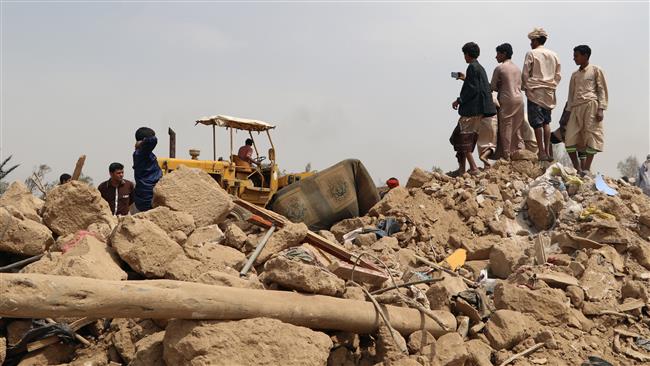
RNA - On Wednesday, the Norwegian Refugee Council (NRC) along with 14 other aid organizations called on warring parties in Yemen to reopen Sana’a International Airport, warning that the year-long closure hinders the flow of humanitarian aid and prevents thousands of patients from flying abroad for life-saving treatment.
“Denial of access to travel has condemned thousands of Yemenis with survivable illnesses to death,” the NRC’s Director in Yemen Mutasim Hamdan said in a statement.
“Without access to safe, commercial travel, Yemenis are left with no way to access critical medical care,” further said the statement. “The result is devastating. Thousands of women, men and children who could have been saved lost their lives.”
The Saudi-led coalition has imposed a no-fly zone over Yemen amid its deadly bombing campaign against the country, which began in March 2015.
Riyadh’s warplanes heavily bombarded the Sana’a airport in April that year, causing severe damage to the facility’s only runway and passenger terminal.
On August 9, 2016, the Saudis shut down the airport in an attempt to tighten the noose on their opponent, the Houthi Ansarullah movement, which is based in the capital. The move has left many Yemenis with no safe means of transport in or outside of the country.
Referring to UN figures, the NRC estimated that before the conflict, 7,000 Yemenis went abroad for medical treatment from Sana’a every year.
Over the past two years, the number of people in need of life-saving healthcare has increased to nearly 20,000 due to the ongoing conflict, the group noted.
Riyadh and its allies have been blocking aid delivery to Yemen. In July, the UN said the coalition prevented deliveries of jet fuel to UN planes carrying desperately needed humanitarian aid to Sana’a.
“Yemen’s public services are crumbling under the pressures of war,” said the NRC’s Hamdan.
“Hundreds of thousands more people are sick, injured or in need of services, but there are drastically reduced resources to meet them,” he said.
“It is critical that all channels of domestic and international air movement are reopened so Yemenis can get help, and help can get to Yemenis,” the activist added.
The Saudi-led war is aimed at reinstating the former president, Abd Rabbuh Mansur Hadi, a staunch ally of Riyadh, and undermining the country’s Houthi Ansarullah movement.
The Houthi movement has been running state affairs since 2014, when Hadi resigned and fled to Riyadh before returning to Aden later. The movement has also been defending the country against the Saudi-led offensive on the country.
The protracted war, which has also been accompanied by a naval blockade, has already killed over 12,000 Yemenis.
The relentless bombardment of the impoverished country by Saudi Arabia’s warplanes has brought Yemen’s healthcare system on the verge of total collapse, destroying hospitals and health facilities, among other civilian targets.
According to the World Health Organization, Yemen is currently coping with the “world’s worst cholera outbreak,” which has claimed the lives of at least 1,800 people and infected more than 370,000 others.
847/940